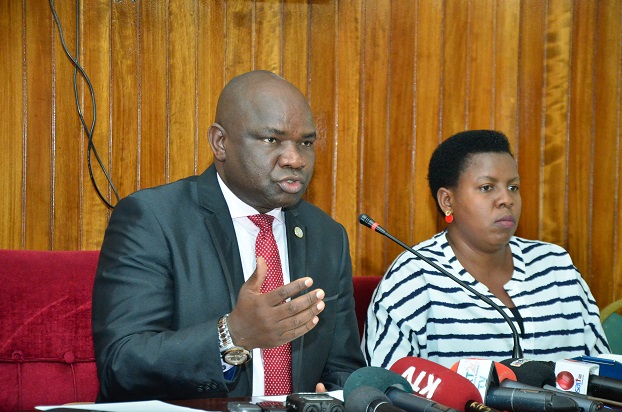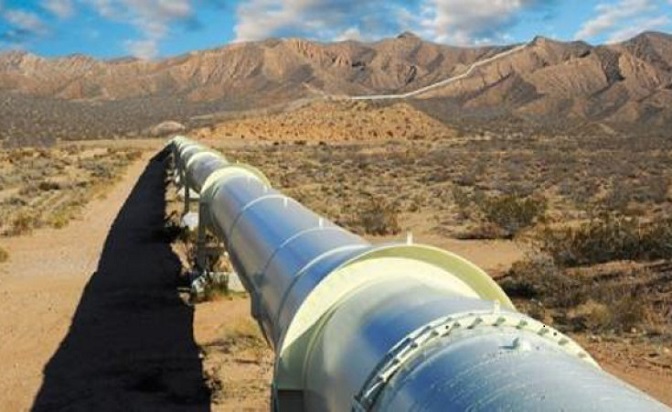L-R: Lawrence Songa (Ora County) and Jacinta Atuto (DWR Kapelebyong) while addressing journalists at Parliament.
A section of lawmakers on Parliament’s Committee on Climate Change have warned Government against selective evictions of people in wetlands and called for uniform application of the law.
Leading the call was Lawrence Songa (Chairperson Climate Change Committee) while addressing journalists at Parliament, where he was responding to queries raised by journalists on why the crackdown on people occupying wetlands only targets the poor, while leaving the rich yet climate change crisis affects the poor most times.
Songa who doubles as Ora County MP said: “If we are removing people from wetlands, if we are addressing this challenge, let it not be selective and let everybody who has committed a crime be dealt with because the law is also not selective, we make it for all of us, so let us treat people equally to see that if they are in the wetland we look for alternatives.”
He also revealed that the Climate Change Committee asked the Academia to conduct a study on the cost-benefit analysis of what impact it will create if investments made in the wetlands are destroyed and if they are destroyed, will the wetlands recover their original value if the factories were demolished.
In November 2015, the Ministry of Water And Environment, Climate Change Department in its Economic Assessment of the Impacts of Climate Change in Uganda revealed that the damage estimates in the agriculture, water, infrastructure and energy sectors collectively amount to 2-4% of GDP between 2010 and 2050.
At the national-level, studies show that if no adaptive action is taken, annual costs could be in the range of US$3.2Bn to US$5.9Bn within a decade, with the biggest impacts being on water, followed by energy, agriculture, and infrastructure.
The report added that the poor and vulnerable groups are mostly likely to be impacted through damages to their assets, livelihoods and their food security.
During the address, Seth Wambedde (Northern Division) called for the need to involve technocrats who are behind issuance of land titles in wetlands, “We must come up with ways and means of going for those ones who are facilitating the acquisition, like the civil servants. If we continue at the rate at which we are degrading the environment and forests, the future will be so bad for us.”
Songa also revealed that following the onsite visit by the Committee on Climate Change with the state of the Kampala Capital City Authority (KCCA) manned landfill in Kiteezi, Wakiso district, the MPs expressed disappointment by the rudimentary manner of its management and the stench emitted by the landfill.
According to Joel Mwesigye, Landfill Engineer at KCCA, the Kiteezi landfill is already full to capacity and this has left people in surrounding areas to battle with the stench affecting people in Kyanja and Gayaza and this has prompted residents to drag the Authority to court over the stench.
He said KCCA had identified 135 acres of land in Ddundu, Mukono district, to establish a modern landfill and seal off the Kiteezi facility, but the Authority is facing resistance from the community.
Songa also revealed that the Committee has encountered incidences where occupants in wetlands have blamed water for encroaching on their land, “The good things is when this thing of climate change happens, climate change has no boundary, so all of us must act. Even when you build in a wetland, when the climate disaster happens, it will follow you there. We know we have some people who say they have land but when you go where that land is, it is in water, how can you have land that is in water? They say my land is under there, it is the water that came.”





